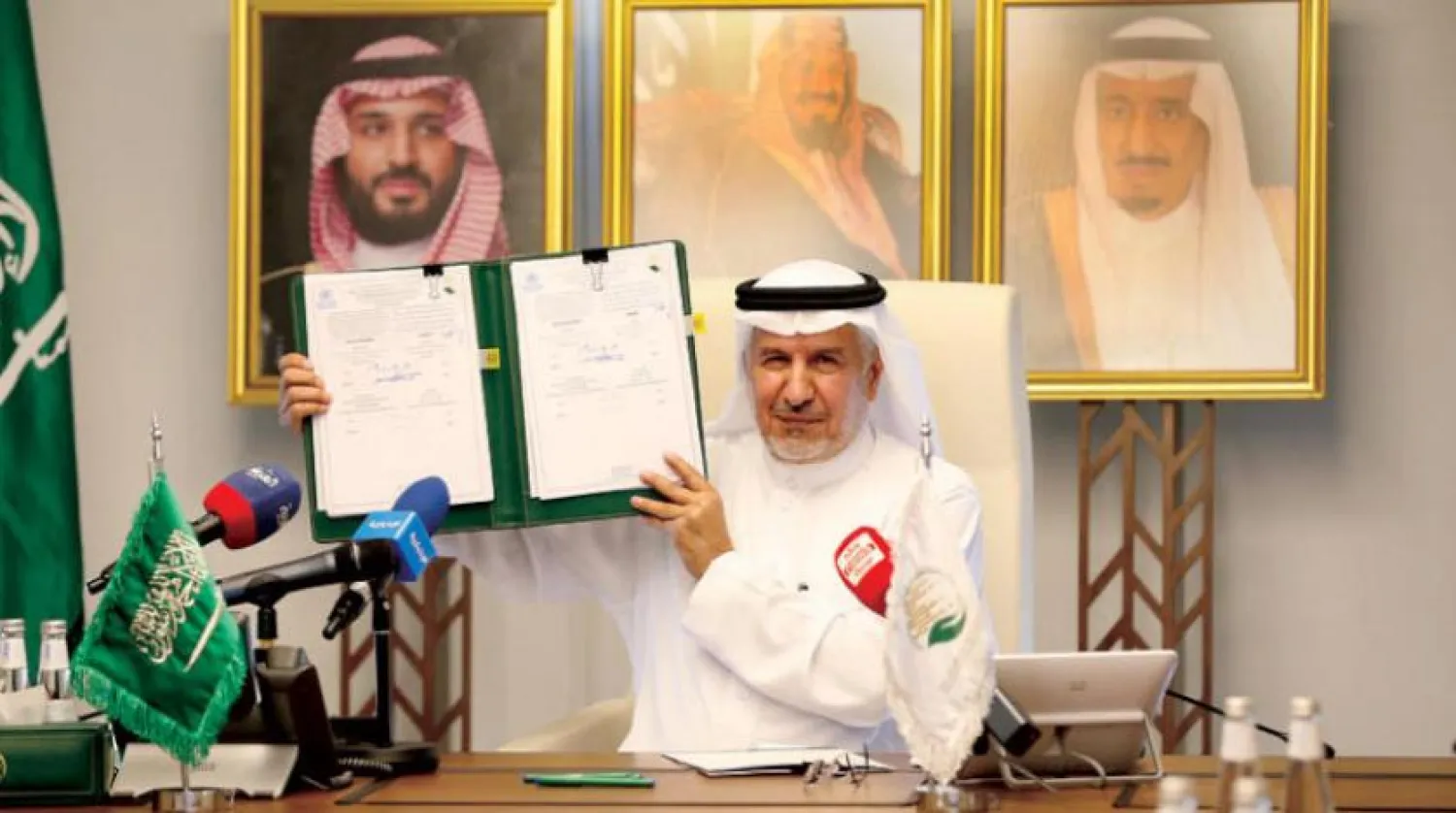The King Salman Humanitarian Aid and Relief Centre (KSRelief) on Thursday signed three agreements with United Nations aid agencies — the World Food Program (WFP), the World Health Organization (WHO) and the United Nations High Commissioner for Refugees (UNCHR).
According to the agreements, KSRelief will provide more than $200 million of assistance to Yemen as part of Saudi Arabia’s contribution to the 2020 high-level pledging event for Yemen, which was hosted virtually in Riyadh in June.
KSRelief Supervisor General Abdullah Al-Rabeeah, answering a question posed by an Asharq Al-Awsat correspondent about the time of implementation for these programs, said that application concerning the aid programs is the responsibility of UN agencies.
He pointed out that KSRelief maintains strict monitoring mechanisms and will closely oversee the implementation of the aid programs to ensure that they are executed swiftly and efficiently so that help reaches all the needy in Yemen.
Al-Rabeeah affirmed the Kingdom’s pioneering role in the field of global relief and humanitarian work, adding that Saudi Arabia has always sought to stand with people in need, especially Yemenis.
For the past several years, the Kingdom has been the largest supporter and financial contributor to humanitarian response plans in Yemen, he said, stressing that Saudi Arabia’s ongoing impartial support had helped the UN and its agencies save and improve the lives of millions of needy people in Yemen.
Al-Rabeeah concluded by stating that the programs signed on Thursday with the UN agencies would contribute significantly to supporting the medical, food and WASH sectors and would help to provide vital services to Yemeni IDPs and others living under extremely challenging circumstances.
The $138 million programs signed with WFP include the provision of urgent food aid to all parts of Yemen — 81,963 metric tons of wheat flour, vegetable oils, legumes, salt, preventive, and curative nutritional supplements, enriched wheat-soya, date biscuits, and high-energy biscuits. These food items will be purchased and distributed to some 8,900,000 people suffering from food insecurity across Yemen.
The program signed by KSRelief with the WHO has a total value of $46 million, and includes health-related initiatives such as WASH projects, programs to combat COVID-19, and anti-malnutrition initiatives.
The program will also support 25 central hospitals across Yemen, providing medical equipment such as ventilators, monitoring devices, and intensive care equipment for COVID-19 patients. It will also support the operation of 223 health facilities, providing fuel to generate electricity, and supporting health education activities, health services packages, and coordination between partners in this field.
In the WASH field, the program covers several projects to combat cholera, improve WASH services in 45 health centers, and support WASH activities in 117 directorates to improve public access to safe drinking water, and improve medical waste management practices to reduce disease risks and enhance water-quality monitoring.
In the area of combating malnutrition, the program supports 90 nutrition centers to provide ongoing nutritional services for people with severe acute malnutrition; the program will also provide treatment for medical complications, reduce the number of deaths from malnutrition, and spread awareness about safe food-handling practices in 222 directorates in 22 Yemeni governorates.
Treatment stations will also be opened and supplied to treat cases of malnutrition and to build local health care capacities in this regard. This project will benefit 23,428 Yemeni children. Isolation units to combating the spread of COVID-19 will be established and supplied with all necessary equipment and other requirements to fight the virus.
The third program was signed with the UNHCR with a total funding amount of $20 million. The program includes two projects: the first is the provision of shelter support, site management services, and non-food items to displaced families, returnees, and vulnerable host communities in Yemen.
This project will benefit 421,384 people in the governorates of Hajjah, Ibb, Hodeidah, Dhamar, Saada, Al Mahwit, Amran, Sanaa, Al-Bayda, Taiz, Marib, Al-Jawf, Al-Dhalea, Shabwa, Lahj, Aden, and Al-Mahra.
The second project provides support for COVID-19 health response for refugees and displaced persons and will benefit 371,950 people in the governorates of Aden, Lahij, Hadramout, and Hodeidah.
These programs are being funded by KSRelief as part of Saudi Arabia’s ongoing commitment to alleviating the suffering of the Yemeni people, in accordance with the generous directives of the government of Custodian of the Two Holy Mosques King Salman bin Abdulaziz Al Saud, Crown Prince Mohammad Bin Salman.









